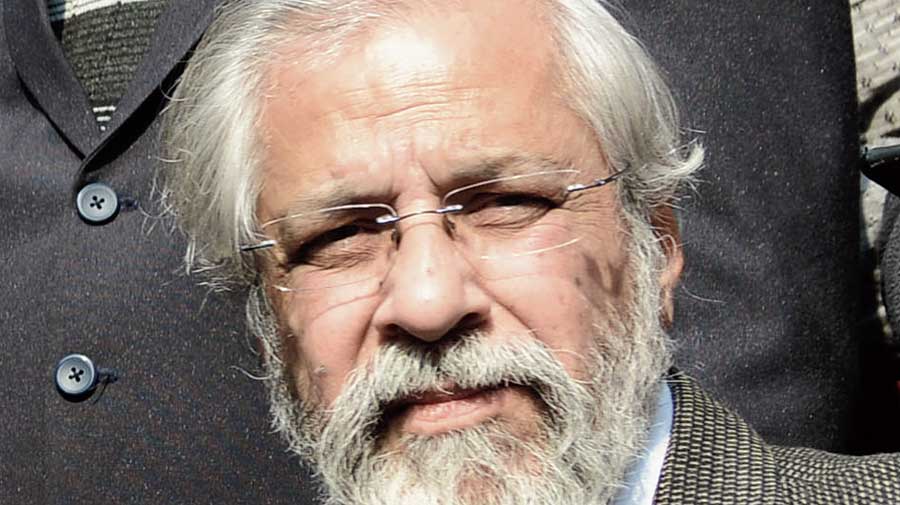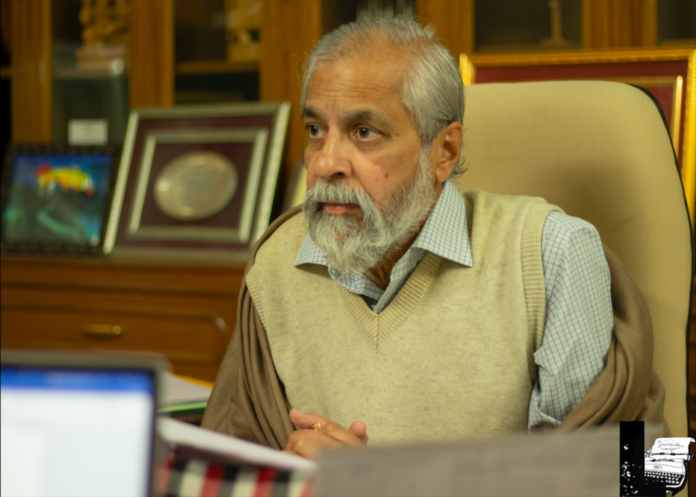Recently, the former Supreme Court Judge, Justice (Retired) Madan Lokur has pointed towards some pressing concerns regarding the present number of large vacancies in the courts and information commissions, which in turn adversely impacts the functioning and speedy disposal of cases while Delivering a talk at a public meeting which was for analysing the implementation of the Right to Information Act (RTI Act), 2005.
The meeting was organised by the Satark Nagrik Sangathan (SNS) on its release of the Report Card of Information Commission in India. Justice Lokur said “a lot many vacancies too exist” while stating that there are about 350 commissioners, this, as he remarked, impairs their functioning. The report shows that the penalty presently being imposed on the information commissioners for not providing information or delay in providing the information sought, occurs only in three percent of cases. This itself becomes a concern because such a lowly implementation will instil no fear of law in the minds of the officers.

Challenges of the RTI Act, 2005:
The meeting also discussed the challenges faced in the implementation of the RTI Act, attributing a major hindering factor to the manner of functioning of the commission. The meeting was filled with voices from citizens from all walks of life, who have earlier availed the access available under the RTI Act, 2005. RTI is being used as a tool by all to know information about their entitlements under various government schemes, e.g., Ration scheme, Pension scheme, etc. In the meeting, Lokur highlighted the testimony of the citizens present over there to prove that access to information has a pivotal role to play in the lives of the people. He compared the power of the government, to arrest a person who is at fault as against the power in the hands of the people to make the right the faults of the government. He says that the latter is lacking.
High Vacancies in Courts and Information Commissions:
Apart from commenting on the information commissioners, Justice Lokur went ahead to point towards a large number of vacancies existing in the courts for judges. Recently, a news report has stated that there is a shortage of some 420 judges, attributing it to the delay in the appointment process. Lokur light-heartedly cracked a joke around the context of the number 420.

For the high number of vacancies of the information commissions, he said, will keep the appeals pending for too long. This, in turn, will negatively impact the right of the people and deprive them of the benefits under the RTI Act. RTI Act, 2005 is a public-spirited act, which can be used to obtain access to information and various related services. A vacancy in a body as important as the information commission should be given the utmost priority by the government, and must be filled at the earliest, he said.
Later in the meeting, Justice Lokur requested the chief information commissioner (CIC) present in the meeting, Mr. Sudhir Bhargava, to make sure that the complaints received against information commissioners and officers are not dealt with impunity. There must be an imposition of some penalty so that their wrongful acts of denying a citizen the access to information does not go unpunished and is dealt with strictly by the information commission.
The downside of the RTI Amendment, 2019
Justice Lokur, in his speech, mentioned that the recently brought changes in the RTI Act have the potential of causing much harm to the rights of the people. He said that earlier this year, the advertisements issued by the CIC for the posts of commissioners came without disclosing any details regarding the tenure, salary, benefits and terms of service.
Moreover, the freshly brought out amendments also don’t issue this aspect of the law. Also, the rules under this central act have not been framed paving the way for even more difficult as there is no clarity of procedure, as a result of which the legal framework is suffering. With advertisements as vague as those published by the CIC, Justice Lokur was suspicious if it would catch the attention of the right people. He said, if the potential applicants are not made aware of the terms of service, tenure and salaries of a position advertised, they might not apply for these vacancies.
Live Telecast and Better Case Management:
Justice Lokur also suggested taking help of the newly developed technology, available to all on a single click on their mobile screens. He proposed developing some mobile applications which can possibly keep the 70 crore people who own phones to see if they are eligible for benefits under any given scheme of the government. He also noted that the Supreme Court has decided to telecast live court proceedings. Similarly, he also requested the CIC to explore possibilities in the same direction, at least for cases involving general public interest. He suggested adopting techniques for better case managements ensuring speedy disposal of cases. He said:
“In the information commissions, 2.70 lakh cases are pending, and so there is an urgent need to dispose of them quickly. If the decisions come after, say five years, then much of the benefit would be lost.”
In response to the demands of Justice Lokur as made at the meeting, Chief Information Commissioner Mr. Bhargava remarked that information commissions strive on the aim and objective to enhance the access of people to their right to information via asking questions. He listed down various steps taken by the CIC in the past, to better the system presently in place. He particularly mentioned issuing directions that irrespective of the physical presence of the applicant in a hearing, the interest of the applicant should be given priority while giving any order. Also adding, that every case is to be decided based on its merits.

With regards to Justice Lokur’s comments on better case management, Bhargaya remarked that there are constant ongoing efforts to ensure that the commissioners dispose a number of 10 to 15 cases of a daily basis and that about 90% of the cases are disposed within two days of filing the same.
Mala Fide Intent Clause:
Amidst discussions of delay in providing information by the Public Information Officer [PIO], Mr. Bhargava remarked that apart from the law set out in the RTI Act, 2005 there are multiple orders of the Supreme Court and the High Court which have to adhere to by the PIO while providing information, of which a defence can also be taken in case of delay or denial of the same. Supreme Court has also ordered saying that unless the mala fide intention of any information officer is proved or established, the penalty cannot be imposed. Proving ‘mala-fide intention’ is often very subjective and thus becomes difficult. Officers have found this loophole and use it to their advantage as mala-fide intention can be seldom proved or established.

Strict Implementation of the RTI Act, 2005:
A representative of the SNS, who organised the meeting by the name Anjali Bhardwaj remarked that a lot of people on a daily basis face difficulty in using the provisions of the RTI Act, 2005. She said at the meeting that information commissions are to be ‘friends of the citizens’, providing information to the people in a proper and timely manner. She said equal importance be given for the proper exercise of functions and disposal of cases by these commissions, as we give to appointments to be made. She showed unequivocal support to the idea of Justice Madan Lokur saying that there has to be a provision for imposing a penalty when there is a delay in delivery of information sought by the citizens under this act. She also clarified that the unified demand for provision of penalty, is not for the sake of penalty itself but rather it should be seen as a mechanism put in place to ensure the proper implementation of the RTI law in the country.
















































